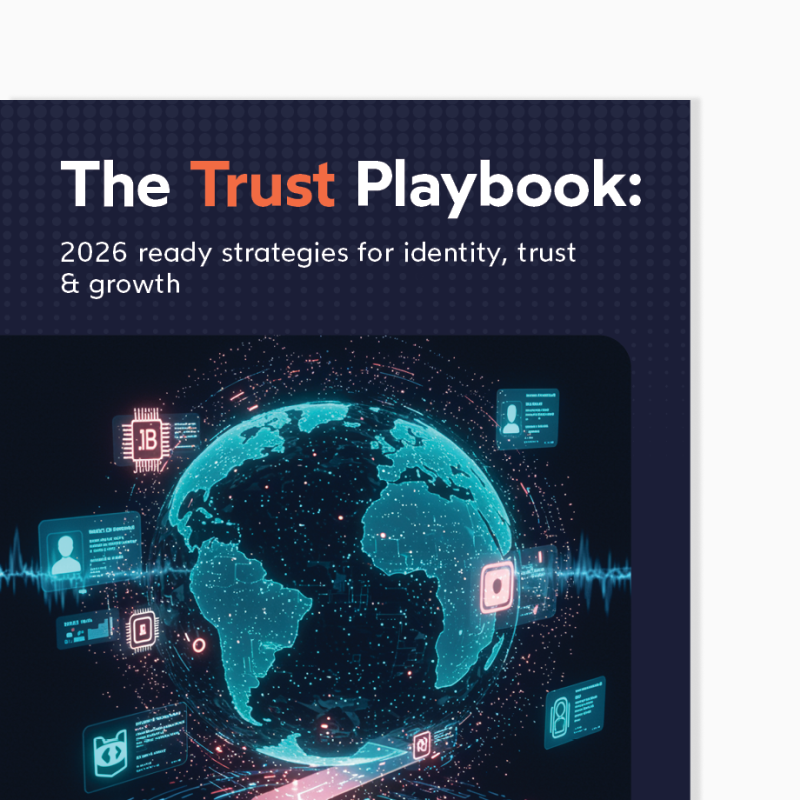Behind every digital interaction is a technical standard working quietly in the background. Here, we explore some of the most important in the digital identity space and explain how they’ll affect how you verify customers very soon.
Over the past few years, the European Union (EU) has garnered much attention in its goal to transform how people interact with governments, businesses, and each other online.
Central to its mission is the rollout of the European Digital Identity EUDI) Wallet, a secure, portable digital identity solution set to become the foundation for cross-border services, e-government, and AML-compliant onboarding.
Two regulations in particular, eIDAS 2.0 and the Anti-Money Laundering Regulation (AMLR), are redefining how identity and trust are managed across the EU.
At the core of the transformation lie technical standards developed by the European Telecommunications Standards Institute (ETSI), the European Committee for Standardization (CEN), and the International Organization for Standardization (ISO). These are legally binding through Commission Implementing Regulations (CIRs), which lay the groundwork for secure, interoperable, and compliant digital identity services.
For example, earlier this year, IDnow became one of the first companies in Europe to receive certification under the latest ETSI standard for remote identity proofing, signifying a crucial step toward meeting eIDAS 2.0 and AMLD 6 requirements. One of the most important technical standards we achieved was the ETSI 119 461 v2.1.1 certification, which is widely considered the ‘compliance benchmark’ for remote identity verification in Europe.
Technical standards ensure interoperability across borders, promote security by design, and create the certainty businesses need to scale.
At IDnow, we’ve championed the EU’s vision for a more harmonized approach to digital identity from the start. Our priority has always been to promote open, secure standards that allow technical innovation to thrive. In a regulatory environment that began shifting from voluntary best practices to mandatory rules, we welcome the clarity and opportunity that harmonized standards bring to the market, to institutions, and above all, to users.
For IDnow’s regulatory and standards department it is important to keep looking ahead to what comes next and how it will affect the everyday lives of people. Standards play a crucial role in ensuring that impact is not only manageable, but truly beneficial. This remains the bedrock of our mission.
The Trust Playbook.

Why standards matter.
Behind every digital interaction, such as verifying your identity for bank account opening or digitally signing a contract, there are technical standards working quietly in the background. These standards ensure that systems speak the same language, that data remains secure, and that services can be trusted no matter where in the EU (or beyond) they are used.
Organizations like ETSI, CEN, and ISO play a critical role in setting these benchmarks. They bring together experts from governments, tech companies, and the public sector to define how trust services, digital identity, and secure onboarding should work.
As the EUDI Wallet and new trust services move from concept to implementation, these standards are not just technical specifications or guidelines; they are becoming the legal foundation for the way digital identity is handled across Europe.
Laying the foundation for trust.
The shift toward standards-driven digital identity and trust services offers better technology and builds a harmonized, secure, and legally enforceable ecosystem across borders. With the EUDI Wallet and the upcoming AMLR, Europe is setting a global precedent in how identity, privacy, and trust should be handled in the digital age.
Standards from ETSI and CEN are already embedded in the first wave of EU’s CIRs and will directly guide how identities are verified, wallets are certified, and trust services are recognized. These aren’t abstract technical documents anymore; they’re becoming the blueprint for how millions of people will access digital services, from banking to healthcare.
What often goes unseen is the deep, ongoing work that makes this possible. At IDnow, our regulatory and standards team has been deeply engaged behind the scenes as we work alongside our colleagues at ETSI, CEN and ISO to shape these standards in a way that balances security, innovation, and practical deployment. It’s this kind of collaboration that enables digital services to scale with confidence and compliance.
More specifically, IDnow has recently contributed to the following standards and technical reports:
- ETSI TR 119 476-1. A feasibility study of how selective disclosure and zero-knowledge proofs can be implemented in the EUDI Wallet. IDnow was one of the main contributors to this technical report.
- ETSI TS 119 461: Requirements that define how identity proofing must be performed when enrolling for a Qualified Certificate or a Qualified Electronic Attestation of Attributes. The standard can also be applied to Personal Identification Data (PID) enrollment to the EUDI Wallet and AMLR guidelines. IDnow has been co-editors and contributors to both versions of this standard.
- ETSI TS 119 431: Specifies how remote signing with Qualified Certificates should be deployed in a remote Qualified Signature Creation Device. IDnow designed the new approach to only rely upon identification for one-time Qualified Electronic Signatures, which streamlines the remote signing process.
- CEN TS 18098: Outlines how to onboard PID to EUDI Wallets. IDnow has been co-editors of the chapters related to identity proofing during the on-boarding process.
Regardless of whether you’re a wallet provider, financial institution, or public sector authority, now is the time to take a close look at how your internal systems align with these evolving standards. After all, these specifications are not optional; they are rapidly becoming the rulebook for trust in Europe.
Want to stay ahead of the regulatory game? Read our recent press release to discover how ‘IDnow sets new standard as one of Europe’s first identity verification providers to meet latest eIDAS 2.0 regulations.’
Interested in more insights from our subject matter experts? Click below!
- Former INTERPOL Coordinator, and current Forensic Document Examiner at IDnow, Daniela Djidrovska explains why IDnow offers document fraud training to every customer, regardless of sector.
- Research Scientist in the Biometrics Team at IDnow, Elmokhtar Mohamed Moussa explores the dangers of face verification bias and what steps must be taken to eradicate it.
- Research Scientist at IDnow, Nathan Ramoly explores the dangers of deepfakes and explains how identity verification can help businesses stay one step ahead of the fraudsters and build real trust in a digital world.
- Senior Product Owner at IDnow, Christophe Chaput explains why the steps we took to comply with the European Accessibility Act made our solutions better – for all our customers.
By

Sebastian Elfors
Senior Architect
Connect with Sebastian on LinkedIn



